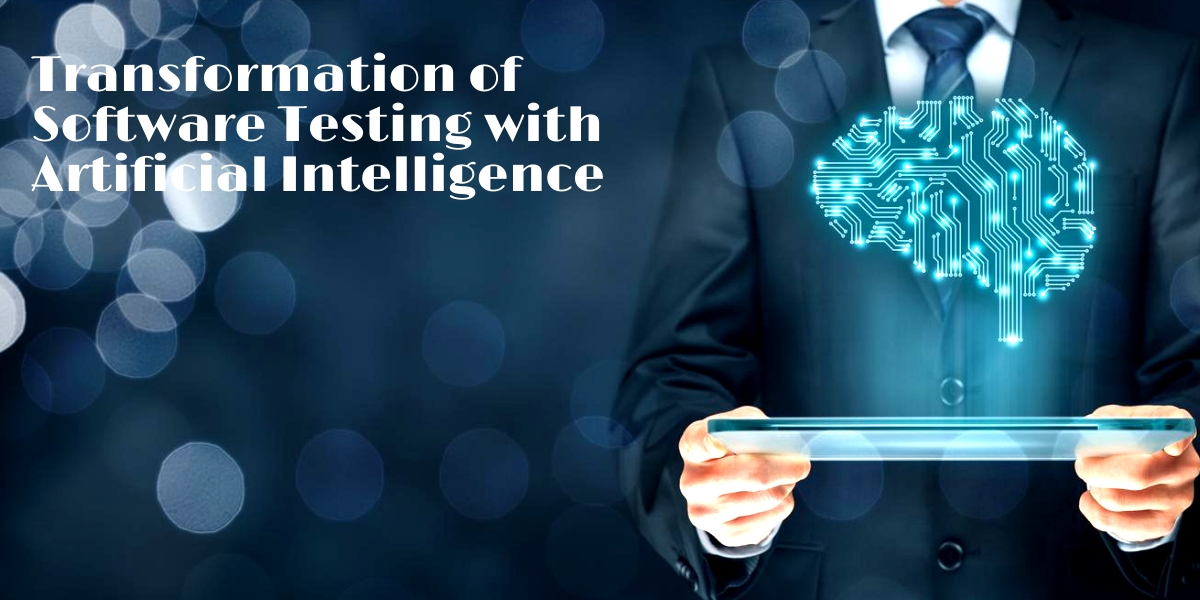In the present-day world, more software applications are covering different domains of human activities. With previous methodologies in software testing, many problems and errors were common. But, with modern technologies like artificial intelligence, software testing has become relatively easier.
How AI Is Transforming Software Testing?
1. Simplifying Complex Tests
Previously, software testing was relatively less complex and also simple. There were fewer amounts of software use and testing involved particular input-output and expected results. On failing, the test was restarted again in order to fix the issue. At that time software testers prepared a checklist to cover user activities, and if any issue arose, they used to solve them. But now the situation is different with complex ecosystems, demanding customers which make traditional methods of testing less effective.
Now due to surplus usage of mobile apps, IoT, etc., it becomes problematic for testers to handle data. At this time, artificial intelligent is the solution. They perform all the work effectively and accurately.
2. Fewer Errors
As traditional methods of software testing were dependent upon manual methods. Things, like collecting information and analyzing them, was prone to certain human errors. With this, it was further problematic to analyze data in less amount of time available. As a result, chances of more worm results along with its failure increased. Hence, it affected customer satisfaction negatively, and the brand reputation also targeted.
But thanks to artificial intelligence and machine learning that enable software testers to obtain accurate results and in a faster way. AI eliminates the occurrence of errors and reduces delivery time in order to fix the bugs.
3. Predictive Analysis
In order to match the pace with the rapidly increasing competition, businesses are under tremendous pressure to meet the demands of consumers. Therefore, to understand better and predict the new services and products that customers will love, predictive analysis plays a vital role. It is one of the techniques of software testing that can improve the data analysis quality of your business. This is exactly what artificial intelligence, along with machine learning does. As predictive analysis is a part of quality assurance in software testing, AI improves testing technique efficiency. AI not only provides faster results, but it also enhances the experiences of software users.
4. Test Script Auto-generation
AI easily ca auto-generate codes that are meant for clicking buttons while operating the screens. Along with it, AI can also generate the codes for form filling, app logs, etc., functions automatically. So, businesses that deploy tests that are AI-driven can be able to generate about 80 percent of codes automatically and reliable. In addition to it, AI also delivers efficiency enhancements to a great extent. With the AI-driven test approaches, a business can achieve auto maintenance. In this approach, when something gets changed in the digital product, tests are built again. It ensures the maintenance of smooth and continuous quality. Another benefit that it can reduce the burden of resources from the shoulders of human testers.
Also Read: AI For Testing: Making Things Autonomous and Perfect
5. Test Optimization
AI is applied on testing to help companies evaluate which test case is prone to most defects. The testing is one based on the information gathered on various risk factors. Instead of taking any haphazard approach when doing software testing, AI does it systematically. Artificial intelligence also allows them to be protected even if the area is risky. So, with artificial intelligence, it delivers highly efficient gains. AI not only optimizes your software testing, but it also ensures the quality experience of software testing so that your testers get delighted.
6. Predict Release Impact On Users
It is very important to predict the release of your software’s impact on its users. So, in artificial intelligence, neutral networks are combined with software test history. They are also combined with data from tests that are running currently. Artificial intelligence does it for you. As for example, prediction of impacts like whether the customers will get more satisfied or less can be analyzed with artificial intelligence. As AI is equipped with certain prediction, you can do adjustments in accordance with the required necessities. Through this, it becomes easy to ensure that users delight remains continuous. Also, they feel more comfortable to experience this digital experience.
7. Determine Business Performance
One of the key advantages of deploying tests that are AI driven is that business can determine the release impact on the overall business performance. Techniques like artificial intelligence, machine learning, and neutral networks help you understand the impact of technical factors on the performance of your business. As for example, some questions like the impact of load times on conversion rates can be determined with the help of artificial intelligence. So, when you understand the impact of certain factors on your business performance, you can make necessary changes so that the issues get minimized.
8. Create Reliable, Automated Tests
Due to human errors, most of the tests fail. Such mistakes can happen all the time. So, at this time, artificial intelligence is the one that will take care of all these issues. It makes your test more reliable and at the same time, more maintainable. As it can automatically make decisions, identification of errors becomes very easy. Even if your application changes, AI can adapt to the changes in no time.







